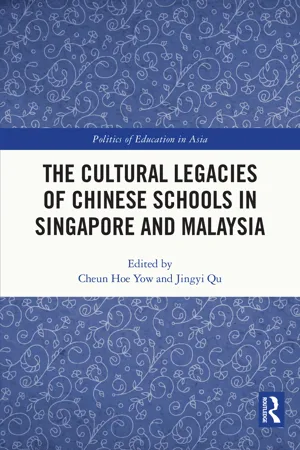Thinking politically
Formal schooling by and large is organised and controlled by the government. This means that by its very nature the entire schooling process – how it is paid for, what goals it seeks to attain and how these goals will be measured, who has power over it, what textbooks and other materials are approved, who does well in schools and who does not, who has the right to ask and answer these questions, and so on – is by definition political. Thus, as inherently part of a set of political institutions, the educational system will constantly be in the middle of crucial conflicts over the meaning of democracy, over definitions of legitimate authority and culture, and over who should benefit the most from government policies and practices. That this is not of simply academic interest is very clear in the increasingly contentious issues surrounding what curricula and methods of instruction and evaluation should be used in our schools. Think for instance of the ongoing debates over what history should be taught in the United States and the exclusion of the real history of Chinese contributions to the United States in the school curriculum of the United States, Japan’s policies to emphasise “economically useful knowledge” and reduce support for the liberal arts in higher education, or the Chinese government’s attempts to limit “Western influences” in schools and universities.
The political nature of education is also made more than a little visible in the current attempts in many nations to change the mode of governance of education (Ball, 2008). This involves conscious policies to institute neo-liberal “reforms” in education (such as attempts at marketisation through voucher and privatisation plans), neo-conservative reforms (such as undemocratically developed top-down national or statewide curriculum and national or statewide testing in nations where this is a radical change), a “return” to a “common culture” in nations where their history and current status is one of substantive cultural and ethnic diversity, the English-only movement in the United States, and policies based on “new managerialism” with its focus on the strict accountability and constant assessment that so deeply characterises the “evaluative state” (Clarke and Newman, 1997; Lynch, Grummell, and Devine, 2012). When the efforts of authoritarian populist religious conservatives in so many countries to install their particular vision of religiosity into state institutions – and the intense conflicts over religion in various countries – are also added to this mix, this places education at the very core of an entire range of political and cultural conflicts (Kintz, 1997; Beydoun, 2018).
In Educating the “Right” Way (Apple, 2006), I raised serious questions about these kinds of current educational “reform” efforts now underway in a number of nations. I documented some of the hidden differential effects of two connected strategies – neo-liberal and authoritarian populist-inspired market proposals and neo-liberal, neo-conservative, and middle-class managerial-inspired regulatory proposals. I described how different interests with different educational and social visions compete for dominion in the social field of power surrounding educational policy and practice. In the process, I documented some of the complexities and imbalances in this field of power. These complexities and imbalances result in “thin” rather than “thick” morality and in the reproduction of both dominant pedagogical and curricular forms and ideologies and the social privileges that accompany them.
This does not mean that more critically oriented policies are without problems. Indeed, I also criticised some of the dominant forms of supposedly counter-hegemonic literature that urge us to move in more “emancipatory” directions. Thus, for example, I argued that the rhetorical flourishes of the discourses of critical pedagogy need to come to grips with these changing material and ideological conditions. Critical pedagogy cannot and will not occur in a vacuum. Unless we honestly face these profound rightist transformations and think tactically about them, we will have little effect either on the creation of a more critically democratic common sense or on the building of more critically democratic alliances among those people who, rightly, have raised serious questions about the ways schools often currently function. The growth of that odd combination of marketisation and regulatory state, the move towards pedagogic similarity and “traditional” academic curricula and teaching, the ability of dominant groups to exert leadership in the struggle over this, and the accompanying shifts in common sense – all this cannot be wished away. Instead, these complex politics need to be confronted honestly and self-critically (see also Apple, 2013a; Apple, Gandin, Liu, Meshulam, and Schirmer, 2018).
Education is thoroughly political in an even more practical and material way. In order to change its internal dynamics and social effects as well as the policies and practices that generate them – and in order to defend the more democratic gains that committed educators and activists have won in many nations over the years (see, for example, Apple and Beane 2007; Apple, Gandin, Liu, Meshulam, and Schirmer 2018; Lim and Apple, 2018) – we need to act collectively. Multiple movements around multiple progressive projects surrounding education and its role in all of the complex politics to which I have pointed above are either already formed or currently in formation. Collective dilemmas warrant collective political/educational responses.
These concerns raise important issues. How do we understand the role of education in general and curricula and teaching in particular in responding to and helping to form collective and progressive democratic action? What is the place of politics in this? Is it possible to alter these politics?
Of course, for ov...
